Project Description
Both as the front man of classic Australian rock band, Goanna, and a solo artist in his own right, Shane Howard has made his mark on both the music industry and the nation as a whole.
In this insightful interview with Jackie Smith, he discusses his upcoming show in Western Australia, music, and his thoughts on some of this country’s more pressing social issues.
You’re performing in Perth in November as part of your Deeper South album tour. How’s that been going so far?
We’ve pretty much covered the country, from the Gurindji 50th anniversary celebrations, to Cooktown and everywhere in between – central Australia, all the south coast and Tasmania. We’ve pretty much been everywhere except Western Australia.
So, it’s great to have the opportunity to come to the west, which is always a good vibe.
What do you love most about WA and Western Australian fans?
Oh, what do I love most? I love Fremantle! (Laughs) I love the Kimberleys. I love down south ‘round Margaret river, that country. Perth and Western Australia, for me, are what I would call the most iconic Australian cities. There’s a sense of being out on the edge of the world a bit.
There’s kind of wildness to Western Australia that you don’t get on the east coast. The whole east coast is very civilised in a way. Western Australia’s still got that sense that you’re living very close to the wild, yeah?
What can people expect from a Shane Howard Trio performance?
Well, we’ve been at it for a while now. As a trio I like to think we’re pretty tight, we’re pretty solid. John Hudson and Ewen Baker (who make up the other two guys in the trio), they’re both really beautiful musicians – Ewen plays fiddle and mandolin and fiddle, and about twenty other instruments, and John’s a guitar player, bongo player – so they push me to a really high standard of musicianship.
And as a trio, without a rhythm section, you really have to make it groove and make it work in a fairly stripped-back way. It really takes you back to the essence of the songs, and a very pure kind of acoustic noise. We get to rattle things around a bit.
What tracks from your new album have received the best response so far?
Different things for different reasons. There’s a track called Everything Is Rusted, which is kind of a farce take on the state of the world at the moment, not just climate change (we touch on all those things), but anyone who lives close to the coast knows everything rusts, everything decays, everything falls apart and it’s a bit like the world, in that reality at the moment. There’s lots of big issues, but we have a lot of fun with that track, musically and lyrically. So it’s good to mess with that stuff.
There’s another track on there that people are loving called Little Joey was a Pirate, because Australia doesn’t have pirate songs (laughs). It’s a bit of a modern day take on that old folk tradition of a murder ballad, set in a modern day context: love gone wrong and things are going to get out of hand. In the old murder ballads, it’s always the woman who gets killed, but in this case, it’s slightly different. She survives.
Will you perform any Goanna tracks as part of the gig?
Yeah, we do always try to honour that Goanna legacy with a couple of songs. People kind of expect that. Songs like Solid Rock, it’s a perennial favourite. I still love playing it, even after 34 years. I still love playing that track. It has its own energy. You never know where it’s going to go when you start playing it; it really has a force all of its own. You never half sing it, you have to give your spirit fully to it, and it’s still always exciting for me to come at that song.
What are some of your personal favourites from your back catalogue [both as part of Goanna and as a solo artist]? Are there others that you particularly enjoy performing, or even some that you don’t?
There’s hundreds of songs there this far down the track, and they’re a bit like your children: you can’t have favourites for fear of jealousy [laughs]. But it shifts and changes. Sometimes, you get sick of doing a particular song. You’ll do it and really love it, and then you’ll get sick of it and move onto other things. It is a funny relationship: falling in love with old songs and different songs at different stages of your life. It is really interesting how that shifts and changes as you move through life. There’s a lot of chapters in life this far down the track. Sometimes [with] some of the early songs, you re-visit them, and it feels like you knew things when you were younger that you’ve forgotten when you’re older. It is a fluid thing.
What do you enjoy most about touring in general?
It gets harder as you get older, I suppose, physically. To travel so much, because every week you’re somewhere else. I live three and a half hours west of Melbourne, so it’s a three-and-a-half-hour drive to the airport to fly anywhere. There’s nothing romantic about the travel.
But once you get to a place, it’s renewing those connections. I’ve built up so many friendships over such a long period of time all over the country, that it’s great to renew those friendships. And the audience always give you an energy. Songs are no good without ears hearing them. It’s a very important relationship, and it’s totally dependent on your audience. In a way, you draw your energy from the audience.
A lifetime is not enough to see this country; I’ve seen so much of it but there are still places that constantly surprise you. Part of it’s about renewing friendships and part of it’s about being surprised by the shock of the new.
Earlier this year, you were appointed as a Member of the Order of Australia for your work in the music industry, and with Indigenous musicians in particular. How do you feel about receiving an honour such as this?
Look, at one level it’s very flattering – I still don’t know who nominated me, they don’t let you know that – and at another level, it’s a bit of a strange thing, that it’s a very old echo of our colonial history, in a way. You know, there’s still the Queen, the crown and all that sort of stuff.
I don’t want to sound ungrateful, but I wish it was coming from an Australian republic. I wish we were reconciled with our first nation’s people, with a treaty that was meaningful. Those things are in the wind; we’re not there yet, but before I die, I’d love to see us as a republic, with an Australian head of state rather than the Queen. (I think that’s pretty old-fashioned.), to have a meaningful treaty that sets us on a proper path, reconciled with our first nation’s people, so we can be a unified country. I still think there’s a lot of confusion and division, and we’ve come a long way since Solid Rock in 1982, but there’s a few key steps to make. I feel like we haven’t got to the starting line yet as a unified nation, but we’re close.
Speaking of Solid Rock, it’s become something of a classic over the years, and it’s a very culturally aware song. In your opinion, what is it about that song and the message it carries that continues to resonate with so many people in Australia today?
Well, I think when it was released in 1982, it had a great beat and you could dance to it. It was a great driving, rock song. For a lot of people, it resonated at that level. But I wrote that song after a trip to Uluru and I was profoundly impacted by the Aboriginal cultural reality that I encountered at that time; it changed my thinking; it changed my life.
I think, at the time that song was released, every Aboriginal person in the country knew exactly what it was about – a lot of other people got it too, who were not Indigenous. As time’s gone on, it’s actually sunk in for people, they’ve realised what the song is about. And it is amazing to think that something you wrote 34-35 years ago still has a relevance today. If I knew what that was, I’d probably bottle it!
An old fella, an old Aboriginal man said to me many years ago, “You went out to that country, into that Aboriginal country, and that spirit followed you around.” Maybe there’s some truth in that. It started a journey for me that has gone on for 35 years, and taken me deeper and deeper into Aboriginal Australia, into that cultural reality. I wish I had another lifetime – there’s so much yet to explore.
Over the years, you’ve performed in Ireland and other places overseas as well as at home in Australia. How are songs that have that cultural awareness like Solid Rock received by an international audience?
Solid Rock threw me headfirst into Aboriginal Australia, and that made me want to understand my own cultural ancestry. In many ways, that led me back to my own ancestry in Ireland, another journey about my own background.
I can’t speak my own ancestral language. I didn’t know the songs or the tunes, and I’ve had to learn all that to get an understanding of that migrant reality. Who were they [my great grandparents]? Where did my deep Indigenous self come from? That’s been an amazing journey.
It is extraordinary how anyone who has had a sense of dispossession or colonialisation understands, I suppose, the dispossession of another people, so those things resonate in lots of places you go. Going to those places then brings about a whole new lot of song writing that’s informed by that sort of reality. Those journeys to other places shift your thinking as well, and change the way you think and the way you write. It’s a never ending journey really into an understanding of the world, and also a deeper understanding of the internal journey.
You’ve performed at quite a few festivals this year, including Pure Gold Live and Big Red Bash. Generally speaking, do you prefer more intimate gigs or festival performances?
They’re all great … [At] an intimate gig, you can explore a different kind of territory; those bigger festivals, often we’ve been a full five-piece show with a bigger rhythm section, and it’s great to rock out. There’s nothing better than doing a lot of those songs, stuff like Solid Rock with a full rhythm section, ‘didge, uke player – really making a big noise. I love that, I love being able to put on the electric guitar and rock out as well. That’s part of me, but I also love that capacity to be intimate with your audience, and explore very subtle realities and subtle feelings. They’re all aspects of our character. We’re complex, we like a lot of different styles of music. It’s the same for me as a writer, some days you just want to strap on the electric and hammer it hard, and some days it’s lovely retreat back to something very frail and vulnerable.
You’ve had a solo career since Goanna disbanded in the ‘80s. How does writing for solo projects compare to when you were in the band?
Well, possibly the same thing. Back in the Goanna days, we were part of a major label, and so they have commercial expectations. But that kind of ended for me – my relationship with large commercial labels – in the ‘90s. I’ve since had my own label and I control my own art. I do what I want! [Laughs]
I follow an artistic journey rather than a commercial journey. I’d probably be better off if I followed a commercial journey, but it’s not me. I go where the story takes me. I go where the spirit leads me. I was born like that; I was made like this. I can’t help it! I’m more attracted to the artist’s journey than a commercial outcome.
All those things, like I said, sometimes you want to strap on an electric guitar and really rock out, and sometimes you get angry about crap that’s going on in the world, and the only response is an angry response. Other times, it’s about exploring stuff that’s deep and tender.
How has the music industry itself changed since you began with Goanna, and then embarked on your solo career?
Well, the digital world has changed everything! If I think back to those early days, we recorded on two-inch tape, and it would cost you $350 or $400 to buy a 15-minute reel of tape to record on. You needed to go into a studio that had half a million to a million dollars’ worth of equipment.
Now I can walk ten yards into my work space at home and record (in the digital reality) with a fraction of the cost. And that’s been transformative. I’ve got to say, for me, it’s been empowering as an artist, being able to take control of your art at that level. I’ve learnt how to use the technology over the years.
I got engaged very early on, when it first emerged because living outside the city centre – which I’ve done most of my life, some in remote places – it was very empowering to create music at a higher level, without having to go to a major city centre. That wasn’t possible back in the ‘80s really.
And the other thing is … young people travelling around the world, filling venues and never putting a poster on the street or an ad in the newspaper. It’s all done through social media. That’s been transformative, and I think it’s challenging the ownership of the major record labels that we had in music.
Goanna’s songs – and those of your own solo career – have become staples of Australian music. I was curious: what music are you listening to? Are there any artists that you particularly favour on the radio at the moment?
[Laughs] I’ve got a lot of children over the years, and they keep you bombarded with what’s happening or what they’re into. We’ve still got two teenage kids at home, and they’re into Ed Sheeran. Older ones get into Florence + The Machine. All this stuff comes into your house; you can’t avoid it [with] teenage kids [laughs]! It keeps you young. It keeps you abreast of what’s going on out in the world.
I love pop music for that reality that it is a forum for new ideas and musical ideas. I grew up in the world of Bob Dylan, Van Morrison, Leonard Cohen, Joni Mitchell, Carole King – that era informed my young years. But I also grew up in the era of The Beatles and The Rolling Stones – really great rock music, fun music, country music.
It’s interesting, we’re now in that kind of era where folk and country music is made a comeback, acoustic music with younger musicians. It’s really interesting. But, you know, a great track is a great track. One of my older daughters was over here the other night, and the two younger ones got Stevie Wonder – Superstitions playing and they’re all dancing around the living room. A great song and a great recording is a great song and a great recording.
There’s always great new music happening as well. That goes right back to pure folk traditions coming out of Ireland or Scotland or England or America, like Gillian Welch and Dave Rawlings, some very purist kind of stuff, right through to pop stuff that’s happening on the radio. It’s all up for grabs.
When you’re preparing for a tour or show such as the one coming up in WA, do you spend much time in rehearsal, given that you’ve been doing this for so long?
You still have to put your head into it. You still have to see where you’re going, where your audience is and what’s relevant. I mean, certainly, you don’t have to be as intensive as when you first set out to start a new project or a new tour, but you’ve constantly got to stay on the game. You’ve got to keep developing; you’ve got to keep trying … and keep yourself interested with new material and interesting songs that take you [places and] are meaningful to the audience.
What advice would you give to aspiring musicians?
Get a real job [laughs]! No, I joke! Just recently T Bone Burnett did an address to the Americana [Fest], and he talked about the fact that music is not a career, or the arts in general are not a career. It’s a calling. And I suppose, it’s really tough out there, probably tougher than ever to be a young artist now, to try and make a living and a career, make a livelihood out of this. You have to be so totally dedicated to it, like, “If I don’t do this, it’s like breathing. I’ll die.”
You have to be so totally committed to it that you have to do it as a vocation. It has to be something that you’re just born to do. I panicked about 10 years ago and I said to my partner Teresa, “I think I’ll have to get a real job.” because it’s not lucrative. That lasted about an hour. Like I said, I was born like this, I was made this way and I can’t stop the songs that keep coming. I have to write them. It is a bit like oxygen.
So, just view it as a vocation and really commit to it, and love it, and enjoy what you’re doing. Quincy Jones, who produced all those great albums, including Michael Jackson’s, he said, “As soon as you go after the money, God walks out of the room.” I think that’s true. If you chase the dollar, you’ll get the dollar, but the spirit will leave you.
If you weren’t a musician, what would you be doing?
That’s a very good question. If I weren’t a musician, what would I be doing? I’d probably be a carpenter, making things with wood, which is one of the things I do in my spare time. Or I’d be doing some kind of environmental work, in terms of revegetation or restoration of landscape.
What else have you got planned for 2016, beyond the gig in Perth?
Well, there’s a few shows. We’re finishing off the Deeper South project for this year. We also did a major show earlier this year called Exile: Songs and Tales of Irish Australia, which honoured my Irish ancestry. We brought a number of artists out from Ireland and Australian artists – Leah Flanagan, Paul Kelly, Declan O’Rourke, Pauline Scanlon from Ireland.
It was a huge project which was at Melbourne Concert Hall and Queensland Performing Arts Centre, and festivals here, but we couldn’t quite make it work in the time frame. We really wanted to do Perth, and we wanted to do Sydney, but we couldn’t make it work in the time frame. We might get the chance to do that in the year ahead, to bring that back. And we’re currently working on mixing the audio for an accompanying DVD that’s going to be released either late this year/early next year.
I’m working on an autobiography, basically just trying to tell my story, and how did a white fella from south-west Victoria end up in Aboriginal Australia. It’s been an amazing journey that’s changed my life. I guess there’s a few stories that are hopefully interesting for other people in that as well.
We’re also fighting commercial horse training on our beaches at the moment, which is destroying the ecology and the beaches. You know, that’s at a local level, trying to protect and defend those environmental areas. (Didn’t think we’d still be fighting for those things, but there’s still so much damage being done in this country, with our colonial history, to the environment.)
They’re challenges for the future, and climate change is a massive challenge for your generation and we have to do what we can to mitigate those impacts, have a very small carbon footprint. I’m very mindful and conscious of that: of not being an excessive consumer.
And I suppose, the biggest thing that haunts me at the moment is this song I wrote called, Come Down Moses, and we’re just doing a film clip for that based around what’s happening in Syria. I find that to be one of the saddest realities of life on earth at the moment.
It’s one of the worst civil wars in history, what’s happening to the children, and families and people who are just being massacred, and in a world that’s caught up with worrying about Kim Kardashian, it’s so ridiculous and absurd. And world leaders seem inert and incapable of doing things to stop the killing and the fighting. It’s time the old men in the suits stepped out of the picture, and let the young people, and particularly the women come to the foreground to reform this world. It needs feminising.

Written by Jackie Smith
- Jackie Smith
- https://twitter.com/jasmith_89



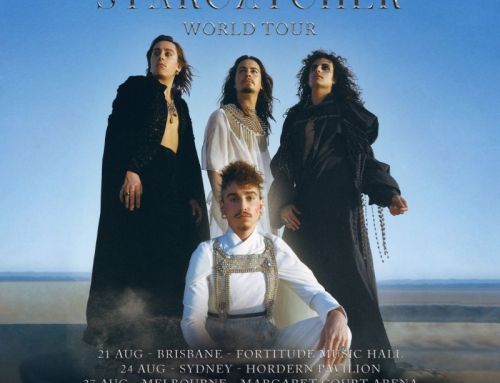
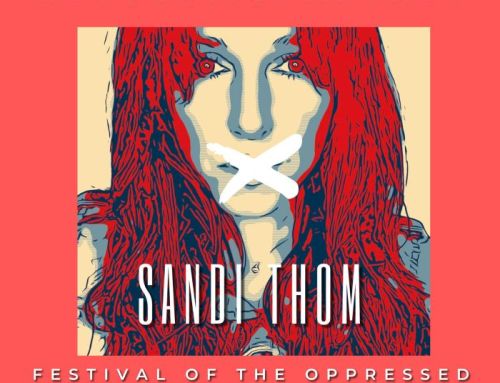
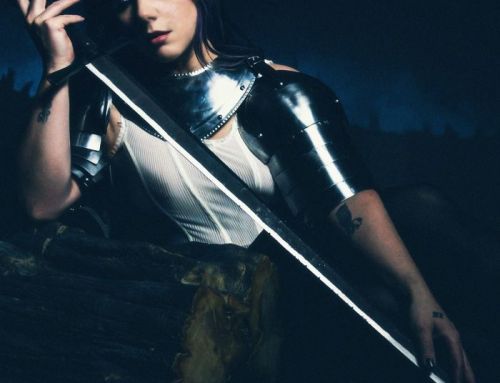
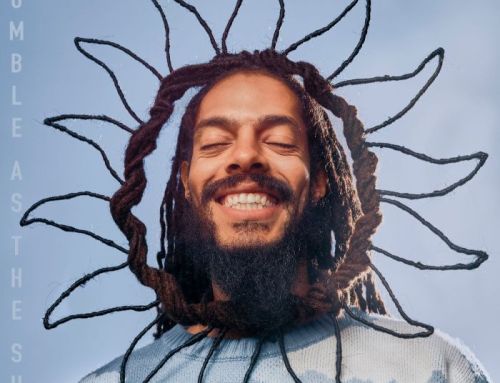
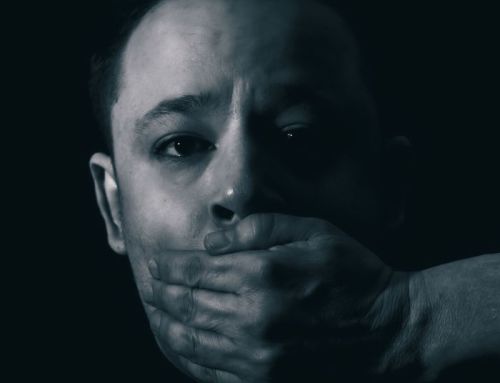
Leave A Comment